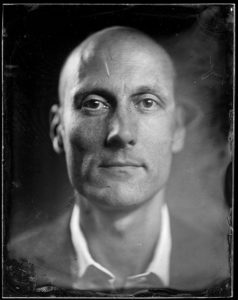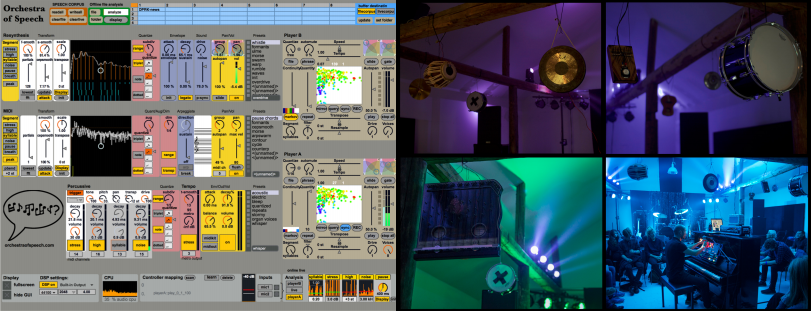Using Speech As Musical Material

Daniel Formo
Daniel Formo (born 1978) works as a musician, composer and researcher within a broad range of music, and is a lecturer at the Department of Music at NTNU. In 2018, Daniel Formo finished his doctoral degree from the Norwegian Artistic Research Program with the project The Music of Language and Language of Music, which resulted in a performance concept called The Orchestra of Speech. This performance concept was the topic of Daniel’s talk.
The Orchestra of Speech
The Orchestra of speech explores the close relationship between music and speech, with the focus being on improvised music and everyday conversation. Daniel talks about the immense complexity of human speech, which he wants to translate into other sounds, using his unique instrument, created in Max. He is not interested in the semantic content of speech, but rather the utterances as an act – as vocal gestures, and looks for speech genres as musical expression. Speech genres being a common social language, like for instance; Smalltalk, interrogation, quarrel, baby talk etc.

With his instrument he can extract a range of musical features from speech (pitch, amplitude, tempo, voice quality and articulation) and orchestrates it into layers of sound and explores this in real time. Daniel compares his instrument to a microscope, where he explains that he can zoom into the speech signal, and then extract the characteristic feature of the voice.
Daniel did not want his instrument to sound like “early electroacoustic music”, so in a performance setting he utilizes transducers to be able to play back his translated sounds through different acoustic instruments, like a drum, organ, guitar etc. During performance he uses a computer with a midi controller to control the speech translation, and often accompanies with a piano and/or his own vocal, improvising music all together.
Q&A
Because of Daniel’s very interesting topic, there were a lot of questions, which is great! Many of the questions addressed his use of speech and language; how he chose a specific language or recording, what he looked for, and for what reason. Daniel expressed that semantics were something he tried looking away from and would only focus on the utterances and musical features of a speech. During his research he was surprised of how similar different languages are when looking away from semantics. He did mention that recordings from Reality-TV is maybe the best source, because of the big range of emotions which are genuine because of the cameras and microphones being hidden. His goal was to extract the significant characteristics of the speech, where even the slightest difference means something, and translate the underlying meaning of the speech into a musical improvisation and find a middle ground between speech and music.
Final Reflections
I think Daniel Formo has become a great inspiration to the students of the sonification course with his Orchestra of Speech instrument. His talk has displayed how sonification can be used as both a tool for research and as a musical instrument for use in a performance setting. His presentation goes through an entire process of a sonification in detail, where he starts with the raw data of speech, and by analysis and feature extraction translate it to musical sounds with the use of mapping and digital signal processing.
If you want to learn more about Daniel’s instrument, take a look at this website. You can even download the Max patch!
